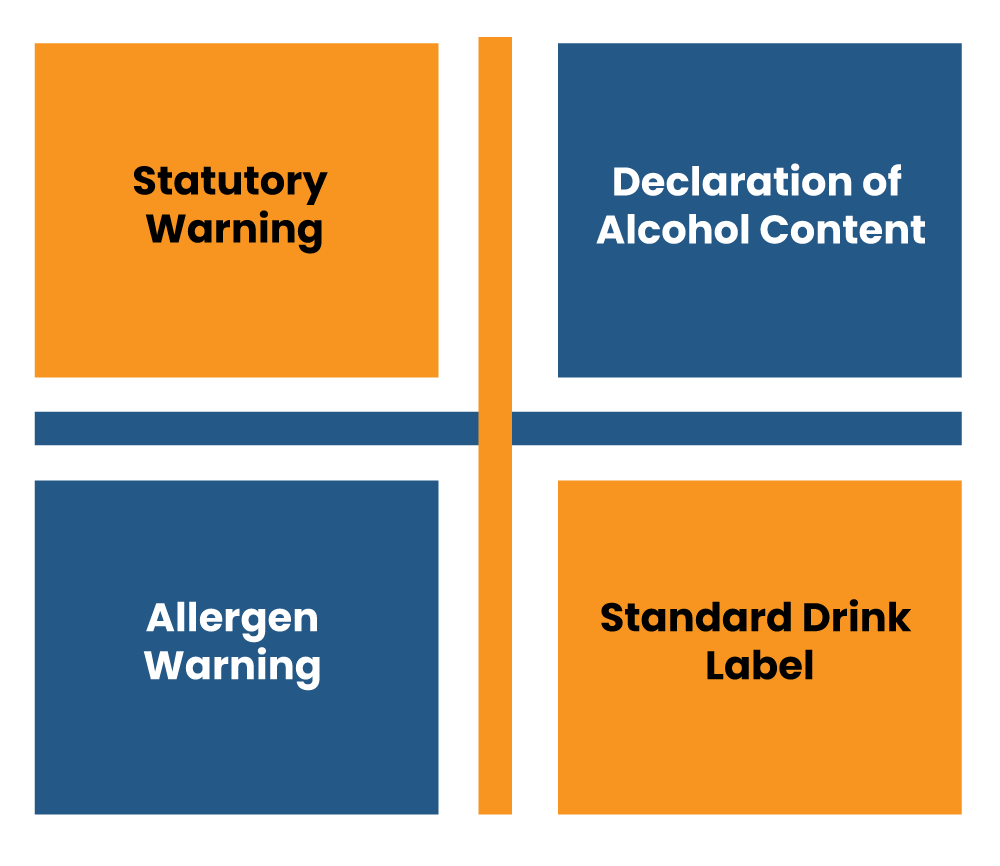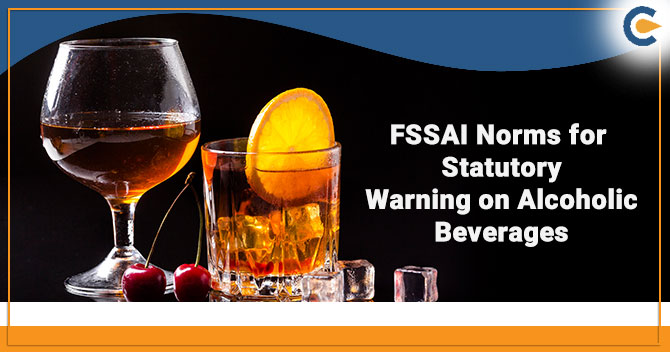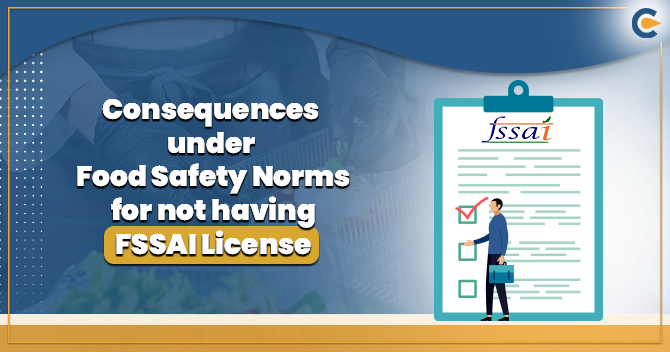FSSAI is an apex institution entrusted with responsibilities to improve food safety and standards across the country by deploying relevant measures. The institution often introduces and amends provisions keeping continual improvement in mind as their core objective. The FSSAI also regulates the manufacturing and labelling of alcoholic beverages in India. Keeping public health and safety in mind, in 2019, the FSSAI came up with an important declaration that mandates the liquor producers to affix the statutory warning on alcoholic beverages. The announcement also entailed the buffer time which helped these producers to sell out the existing stock with the old labelling.
Those who yet to familiarize themselves with the declared norms can refer to the below points for better understanding.
Key announcements made by the FSSAI for labelling of Statutory Warning on the alcohol beverages
- The labels present on the alcoholic beverages must reflect the exact amount of alcohol content in term of per cent alcohol by volume (.abv).
- The label may express the approx number of standard drinks in the
package.
According to the Food Safety and Standards (Alcoholic Beverages) Regulations, 2018, the term “Standard Drink” refers to the amount of beverage that has 12.7 ml of alcohol by volume as measure at 20 c. - The inclusion of geographical indicators is a must on the label for the alcoholic beverages originating from a geographical location.
- Alcoholic beverages cannot manifest any state nutritional information or a health claim on the label.
- The producers cannot affix the word like ‘non-intoxicating or other identical words on the label of alcoholic beverages having more than 0.5% abv.
- The labels affixed on the wine produce must reflect geographical indication, type of grapes used and the category of preservatives or additives that exist in the final product.
- Liquor category other than wine that posses less than 10% of alcohol must declare the “expiration date” or “Use By” date. Such information should be displayed in the format of date, month and year. The producers are free to use the expression like “Best before” as supplementary information.
- The Wine produce should reflect expressions like “Contains Sulphur Dioxide” or “Contains Sulfite” if it contains 10 mg of Sulphur Dioxide per litre.
- If the residue is originated from an animal such as egg white then the same must find its way to the label in the form of a non-vegetarian logo.
Important Criteria pertaining to Statutory Warning
The notification announced by FSSAI has mandated the liquor producers to ensure that
- Statutory Warning displayed in a square-shaped box, just like warning signal of the Cigarette packets.
- The font size of such a Statutory Warning is kept at 3mm.
- The Statutory Warning is displayed in the English Language.
The panel present in the 13th meeting of the Scientific Panel on water and beverages have made the following recommendations;
- The bottle containing alcoholic beverages must carry a label reflecting the Statutory Warning in capital letters.
- The overall height of the letters in the warning statement should not be less than the permissible size limit i.e. 1.5mm.
- Similarly, the height of the warning letters on the bottles containing 200 ml of alcoholic beverages should not be less than 3mm.
Key Details on the label affixed on alcohol-based beverages


Role of FSSAI and its prominence in the Alcohol industry
The FSSAI is recognized as a premier legal house that decides on the regulations to be deployed for the improvement of Food safety and standard in India. The institution aims for continual improvement of norms and effective regulation of FBOs operating pan India. Keeping public health and safety in mind, the FSSAI often amends the prevailing norms to keep things under control.
The erstwhile FSSAI’s norms only cover the “toddy” as the form of alcoholic beverages. It is cited in clause (1) of the sub regulations 2.10.5 which revolve around alcoholic beverages. But after the promulgation of aforesaid notification things had been changed.
Currently, the prevailing FSSAI guidelines cover wide arrays of alcohol-based beverages such as brandy, rum, vodka, gin, whisky, wines, beer etc. The standard gives extra emphasis to labelling requirements to ensure improved consumer awareness. The norms rendered by FSSAI for liquor producers had been touted by the stakeholders because of its ability to align with global standard and explore the untapped market in India.
Conclusion
World Health Organization immensely favours the detailed labelling on alcohol-based beverages. According to them, the Statutory Warning on alcoholic products is one of the key components of public health strategy to minimize the dreadful repercussions caused by alcohol. To instil a better social understanding, it is crucial to highlight the health-related issues in form of a warning on the label of alcohol-based beverages.
As per the Lancet study’s report, India’s yearly alcohol consumption[1] has seen a steep rise of 38% in the last 7 years. The ever-evolving social norms have re-ignited the alcohol beverage market in India. Gone are the days when alcohol was treated as taboo in society. At present, the consumption and demand for alcoholic beverages, especially in metropolitan areas, is beyond monumental. Since the demand for alcoholic beverages is on the rise and it directly affects one’s health, FSSAI has underpinned the above guidelines for liquor producers.
Ping us via messages if you seek more information on this topic. We assured you to deliver pinpoint solutions to your queries.
Read our article:FSSAI Rolled out SOPs for the Refund of Erroneous Payments for Licenses or Registration













